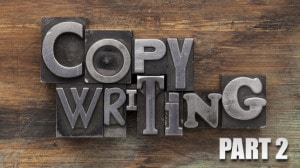
Do: Use Proper Headings With Keywords
Headings and subheadings make your webpages easy to navigate through, which will ultimately help your readers get the most value possible out of them. When you change the subject of your writing, create a new heading that informs the reader of what you’re about to write. Incorporate keywords into your headings where possible to maintain your keyword density and SEO strategies. This will keep Google happy with your work.
Don’t: Go Overboard With Bullet Lists And Images
Bullet lists and images are great for webpages because they enhance the content and bring more value to the reader. Nevertheless, these add-ons can clutter up a blog post or webpage if they are used in excess. If you are going to use an image on a page, try to use one per every 500 words of text. For bullet lists, try to have at least one solid paragraph of text between each list, and use a maximum of two lists per 500 words. Following these simple rules will keep your content clean while ensuring that you have enough text on the page.
Do: Tag And Optimize Your Posts, Images, And Pages
Almost every content management system you can work with will have the option to add tags to your webpages and media content. Use these tags wisely. Include any keyword you are targeting for the page in the tags, as long as the content does in fact match the keyword. This will help Google index your web pages better, and it will create a clean search option for people who come to visit your website.
Don’t: Use More Than 5-10 Tags Per Post
Tags are not meant to be used in excess. They are supposed to represent the overall idea in a post or page, not every single topic discussed in it. Limit your tag groupings to 5-10, keeping in mind the most important information in each article. Try to remain consistent with the way you tag your posts so that similar topics will show up together.
Follow these tips when copywriting for Google, and your website will do much better in the long run.